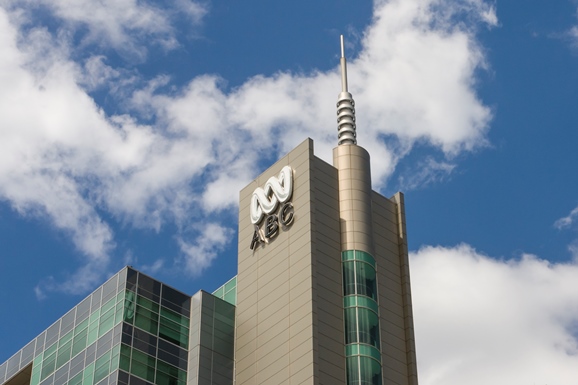The past four years have seen the ABC’s commissioning budgets for adult drama and children’s content drop around 20 per cent each, according to new data released via Senate Estimates.
The ABC has revealed numbers around its expenditure, budgets and hours for drama, narrative comedy, children’s and documentary following questioning from Greens Senator Sarah Hanson-Young.
The data shows that the public broadcaster’s overall content budget (excluding news and current affairs, marketing and promotions) dropped from $188.1 million in 2012-13 to $171.9 million in the 2015-16 financial year; almost 9 per cent.
In adult drama, commissioning budgets fell from $45.6 million in 2012-13 to $36.3 million in the last financial year; approximately 20 per cent. However, budgets for narrative comedy have increased from $5.5 million to $8.5 million over the same period.
The commissioning budget for children’s has dropped from $20.3 million in 2012-13 to $16.2 million last financial year; also approximately 20 per cent.
The budget for documentaries has dropped from $7.3 to $6.8 million in the past four years while factual budgets have reduced from $3 million to $2 million.
Spending and hours
The ABC’s expenditure on adult drama (excluding labour costs) was at $44.4 million in 2012-13, reduced to $36.2 million by 2015-16. This was accompanied by a fall in hours produced from 65 to 52 over the same period.
Spending on comedy remained relatively stable, at $10.74 million in 2012-13 to $8.96 million in 2015-16. However, hours dropped steeply – from 50 hours in 2012-13 to 18 hours produced in 2015-16.
Children’s expenditure dropped from $20.2 million in 2012-13 to just below $17 million last financial year, and hours produced dropped from 321 to 279.
The number of hours produced in factual programming has seen a spectacular fall since 2012-13; from 547 hours to 87 hours last year. However, this has not been accompanied by a substantial fall in expenditure; from $3.5 million to $2.8 million.
Documentary spending has remained relatively stable over the past four years, with 2015-16’s $8.8 million up on 2012-13 by $1.5 million. However, hours are down from 77 to 51. The 2014-15 financial year was the worst for documentary at the public broadcaster over the four year period; at 37 hours and only $6.8 million expenditure.
In terms of the first-run Australian content broadcast on the ABC, drama and narrative comedy hours have dropped from 68 to 60 since 2012-13, children’s from 450 to 316 and factual 212 to 89. However, hours for first-run Australian documentary have increased to 39 to 43.
Despite questioning from Hanson-Young, the ABC did not provide a specific breakdown on expediture incurred for Australian programs in drama, narrative comedy, children’s, factual or documentary.
Content quotas rejected
In an essay released earlier this year, former ABC TV director Kim Dalton argued that the ABC’s charter be amended to include a specific commitment to Australian screen content and support for the growth and sustainability of Australia’s screen production industry.
Dalton also argued that the government put in place governance measures to ensure that the ABC broadcast high levels of Australian screen content across all genres, and that government propose the introduction of independent production quotas on the ABC, including regional quotas. He also suggested that the broadcaster develop a terms of trade agreement with Screen Producers Australia.
However, in response to another question from Hanson-Young, the ABC has rejected the notion that local content quotas, like those that the free-to-air networks are obliged to fulfill, should be applied to the ABC.
The public broadcaster said in order to fulfill its charter requirements it is already incumbent to create local content.
“In 2015-16, ABC TV’s primary channel broadcast 69 per cent Australian content from 6am to midnight. In comparison, commercial free-to-air television licensees are required to broadcast an annual minimum transmission quota of 55 per cent Australian programming between 6am and midnight on their primary channel,” the statement said.
“The ABC also exceeds the Australian content quota requirements of commercial free-to-air across specific genres, including documentaries and children’s content. Accordingly, the ABC does not believe that a local content quota is required for the ABC.”
The ABC has also said that the application of quotas to SVOD entities is a policy matter for government, however said that “given the popularity of local content with Australian audiences, the ABC considers that the local broadcasters are in a unique position to develop and produce Australian content and this local market advantage should be encouraged rather than unduly encouraging additional competition in the production of local content.”
“Government must recommit funding”
Screen Producers Australia has called the data on budgets, hours and expenditure “sobering”, arguing the government’s cuts to the ABC are impacting the broadcaster and in turn, the local independent production sector.
“The 2014 budget continues to bite. We see a peak in production, expenditure and hours in 13/14 and a steep decline following. The government must recommit funding to the ABC,” said SPA CEO Matt Deaner.
Deaner also said it was “a source of continuing frustration” that it was up to the Senate to obtain these figures from the ABC.
“These same figures are supplied by the commercial television broadcasters to, and reported by, the ACMA under their licence conditions,” he said.


